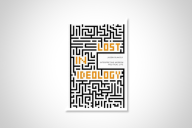You have /5 articles left.
Sign up for a free account or log in.
For a week now, friends have been sending me links from a heated exchange over the status and value of black studies. It started among bloggers, then spilled over into Twitter, which always makes things better. I'm not going to rehash the debate, which, after all, is always the same. As with any other field, black studies (or African-American studies, or, in the most cosmopolitan variant, Africana studies) could only benefit from serious, tough-minded, and ruthlessly intelligent critique. I would be glad to live to see that happen.
But maybe the rancor will create some new readers for a book published five years ago, From Black Power to Black Studies: How a Radical Social Movement Became an Academic Discipline (Johns Hopkins University Press) by Fabio Rojas, an associate professor of sociology at Indiana University. Someone glancing at the cover in a bookstore might take the subtitle to mean it's another one of those denunciations of academia as a vast liberal-fascist indoctrination camp for recruits to the New World Order Gestapo. I don't know whether that was the sales department's idea; if so, it was worth a shot. Anyway, there the resemblance ends. Rojas wrote an intelligent, informed treatment of black studies, looking at it through the lens of sociological analysis of organizational development, and with luck the anti-black-studies diatribalists will read it by mistake and accidentally learn something about the field they are so keen to destroy. (Spell-check insists that “diatribalists” is not a word, but it ought to be.)
Black studies was undeniably a product of radical activism in the late 1960s and early ‘70s. Administrators established courses only as a concession to student protesters who had a strongly politicized notion of the field’s purpose. “From 1969 to 1974,” Rojas writes, “approximately 120 degree programs were created,” along with “dozens of other black studies units, such as research centers and nondegree programs,” plus professional organizations and journals devoted to the field.
But to regard black studies as a matter of academe becoming politicized (as though the earlier state of comprehensive neglect wasn’t politicized) misses the other side of the process: “The growth of black studies,” Rojas suggests, “can be fruitfully viewed as a bureaucratic response to a social movement.” By the late 1970s, the African-American sociologist St. Clair Drake (co-author of Black Metropolis, a classic study of Chicago to which Richard Wright contributed an introduction) was writing that black studies had become institutionalized “in the sense that it had moved from the conflict phase into adjustment to the existing educational system, with some of its values accepted by that system…. A trade-off was involved. Black studies became depoliticized and deradicalized.”
That, too, is something of an overstatement -- but it is far closer to the truth than denunciations of black-studies programs, which treat them as politically volatile, yet also as well-entrenched bastions of power and privilege. As of 2007, only about 9 percent of four-year colleges and universities had a black studies unit, few of them with a graduate program. Rojas estimates that “the average black studies program employs only seven professors, many of whom are courtesy or joint appointments with limited involvement in the program” -- while in some cases a program is run by “a single professor who organizes cross-listed courses taught by professors with appointments in other departments.”
The field “has extremely porous boundaries,” with scholars who have been trained in fields “from history to religious studies to food science.” Rojas found from a survey that 88 percent of black studies instructors had doctoral degrees. Those who didn’t “are often writers, artists, and musicians who have secured a position teaching their art within a department of black studies.”
As for faculty working primarily or exclusively in black studies, Rojas writes that “the entire population of tenured and tenure-track black studies professors -- 855 individuals -- is smaller than the full-time faculty of my own institution.” In short, black studies is both a small part of higher education in the United States and a field connected by countless threads to other forms of scholarship. The impetus for its creation came from African-American social and political movements. But its continued existence and development has meant adaptation to, and hybridization with, modes of enquiry from long-established disciplines.
Such interdisciplinary research and teaching is necessary and justified because (what I am about to say will be very bold and very controversial, and you may wish to sit down before reading further) it is impossible to understand American life, or modernity itself, without a deep engagement with African-American history, music, literature, institutions, folklore, political movements, etc.
In a nice bit of paradox, that is why C.L.R. James was so dubious about black studies when it began in the 1960s. As author of The Black Jacobins and The History of Negro Revolt, among other classic works, he was one of the figures students wanted to be made visiting professor when they demanded black studies courses. But when he accepted, it was only with ambivalence. "I do not believe that there is any such thing as black studies," he told an audience in 1969. "...I only know, the struggle of people against tyranny and oppression in a certain social setting, and, particularly, the last two hundred years. It's impossible for me to separate black studies and white studies in any theoretical point of view."
Clearly James's perspective has nothing in common with the usual denunciations of the field. The notion that black studies is just some kind of reverse-racist victimology, rigged up to provide employment for "kill whitey" demagogues, is the product of malice. But it also expresses a certain banality of mind -- not an inability to learn, but a refusal to do so. For some people, pride in knowing nothing about a subject will always suffice as proof that it must be worthless.








